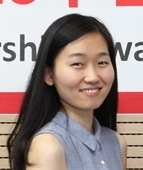Like every other Korean student, I started studying English in elementary school. But for me, it was through self-study materials not in school.
I began to take it more seriously during my second year of high school to prepare the College Scholastic Ability Test. When I was a university student, I watched British and American television shows and movies to keep myself interested in English.
Recently, I self-studied for the British Council’s International English Language Testing System to do a master’s degree in the United Kingdom.
I was very lucky to be naturally interested in “learning” English from an early age, but this is not the case for most Korean students. Almost all Korean students are forced to “study” and even be good at English whether they personally find a need for it or not.
This is because English has become an essential qualification for well-paid, stable jobs, which the majority of students are expected to aim at.
Understandably, a large number of public schools and private educational institutions would teach students about how to get high marks in exams by making them “memorize” grammar, vocabulary and tricks in reading and listening.
For instance, when I was a high school student, I had to write an entire text 10 times before beginning a new chapter but never had a lesson about how to write an essay or how to make a speech.
Therefore, many students tend to find “learning” English very boring and feel pressured when speaking English in front of native speakers.
It was a key point for me to not lose interest in “learning” English regardless of purpose, so that taking exams would not be too stressful.
Furthermore, English class was compulsory only until I was in my second year at university and thus, it was important to continue studying regularly on my own.
What I did out of class was to watch, read and listen to what I needed and liked the most at the moment “in English” at least for half an hour a day.
Even when I studied for IELTS, I did not just familiarize myself with IELTS but English in general using different kinds of learning methods such as reading articles related to my work or hobby from BBC, watching British and American TV shows and listening to podcasts in English.
A website called “LearnEnglish” by the British Council was very useful as well. I would like to advise other students to find the way that suits you best to avoid getting bored of studying English and to remember that ability is not necessarily proportional to expense.
I have never studied abroad before, but still managed to win the regional IELTS scholarship given to only three students in East Asia.
 |
Kim Soo-youn |
By Kim Soo-youn
Kim Soo-youn graduated from Sungkyunkwan University and will pursue a master’s degree in museum and artifact studies at Durham University on a full scholarship from British Council IELTS Korea. ― Ed.








